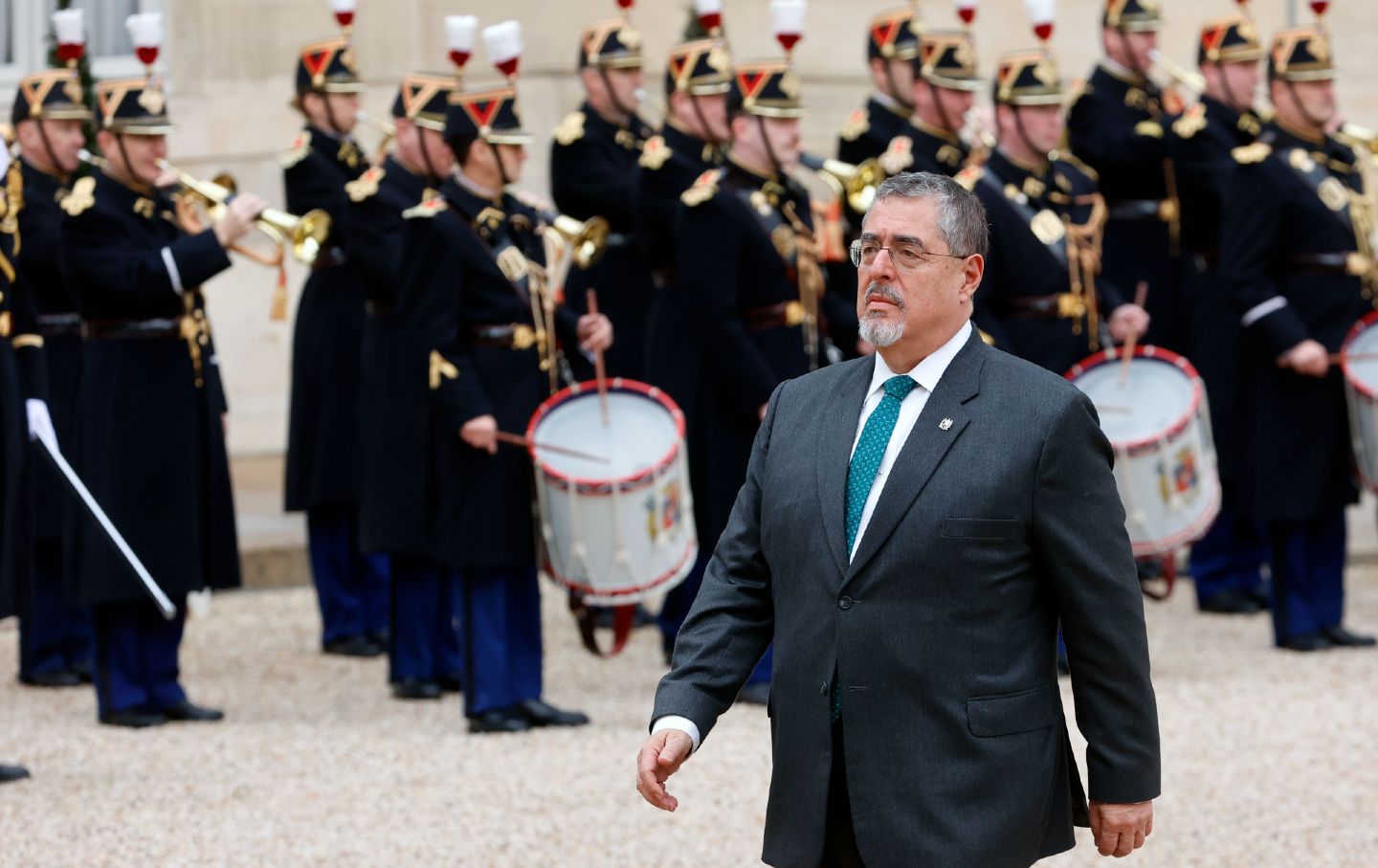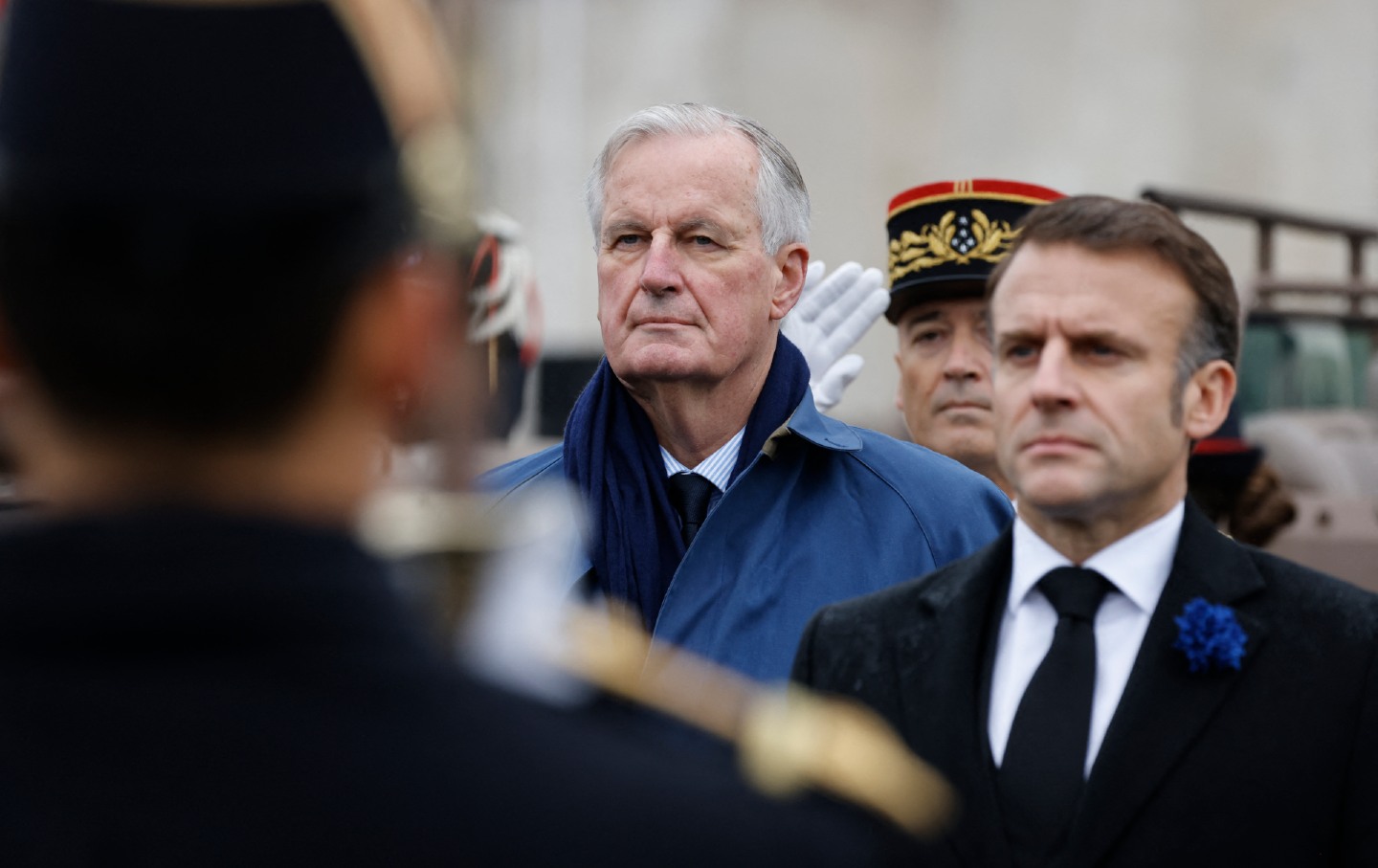America’s Turbulent Path in Guatemala
Did the US halt a coup against President Arévalo—and democracy?

Last month, the Biden administration intervened in a presidential election in Central America’s largest nation, Guatemala. It did so despite knowing that, for decades, Latin Americans have fiercely protested US meddling in their domestic politics. But, in fact, in this case, Washington’s intrusion earned applause around the Western Hemisphere. Why?
In the summer of 2023, to the astonishment of a nation long dominated by corrupt right-wing leaders, Guatemala elected a center-left candidate, Bernardo Arévalo as president. It seemed like an implausible twist of fate. Arévalo had faced insurmountable odds. In pre-election surveys, he got only 3 percent in the polls. Extreme rightist electoral authorities could have disqualified him from the contest but deemed him no threat and let him run. In the first round of voting, Arévalo scored a remarkable second-place finish, raised up by long-disenfranchised Ladinos, indigenous peoples, and the youth vote. In the August 20 runoff, he went on to win, with 60 percent of the vote. His victory represented a direct challenge to the extreme conservative establishment in Guatemala—retrograde politicians, wealthy propertied scions, rightist big businesses, the army, and the Catholic Church.
In a panic, these forces coalesced against Arévalo to try to keep him out of office. The outgoing president, a strongman named Alejandro Giammattei, along with his ultra-conservative colleagues in Guatemala’s Congress, backed by a fiercely right-wing attorney general, Consuelo Porras, sought to suspend Arévalo’s party, raid election offices, seize ballot boxes, and lodge criminal charges against him.
US President Joe Biden, a vocal pro-democracy advocate, realizing that Arévalo’s victory might go awry, acted. According to a report on January 12 in The Washington Post, Secretary of State Antony Blinken, at Biden’s bidding, applied intense pressure on the Guatemalan elite to accept the outcome of the race. Biden issued a statement lauding Arévalo’s triumph; the US Department of Defense communicated its concerns to Guatemala’s military leaders; and the European Union imposed sanctions and, along with the Organization of American States, released a statement demanding that the results be respected.
Then, the State Department canceled visas for nearly 300 Guatemalans, a decree that covered two-thirds of the members of Congress, many of whom owned assets in the US. Protests by Indigenous groups followed. Under this pressure, the opposition capitulated. Arévalo took office as the new president of Guatemala on January 15, 2024. Washington helped stop a coup against democracy. Democrats throughout the Hemisphere and Guatemalan dissidents in jail or in exile expressed immense gratitude for Biden’s actions.
Recall, that in the 19th and 20th centuries, a long, sad, tale unfolded of buccaneers, con men, and rogues, some from the United States, marauding in countries up and down the isthmus, extracting treasures and seizing land. Guatemala was one of the grievous victims of this abuse. Washington propped up dictators and military strongmen.
Decades later, in 1944, Guatemala had abruptly turned around. Dissident army soldiers overthrew its longtime authoritarian leader Jorge Ubico. The rebels, along with excited citizens of the country, held Guatemala’s first fully free election. Voters elected a man named Juan Jose Arévalo, a teacher, as president—the father of Guatemala’s newest president, Bernardo. Arévalo, influenced by President Franklin Roosevelt and his New Deal, soon introduced reformist measures on health, education, social security, and unionization. Washington was pleased.
But US happiness about Guatemala did not last long. The Cold War intervened. By the early 1950s, the conservative, pro-business, Eisenhower administration had arrived. It began looking askance at Guatemala. Arévalo’s successor, President Jacobo Arbenz, had introduced a land reform program that was confiscating the unused, fallow planting fields of the nation’s largest employer, the US-owned banana company United Fruit, distributing the acreage to his nation’s impoverished farmers. United Fruit angrily condemned Arbenz’s expropriations as Communist-inspired—though Arbenz was financially compensating the corporation for the assessed value of its land. Convinced of Soviet infiltration, Eisenhower authorized a clandestine CIA intervention. The agency ousted Arbenz, installed a military junta, ended democracy, and soon after, triggered a civil war which lasted over three decades, eventually leading to the deaths of over 200,000 people, placing Guatemala under gang rule for years.
Then, exhausted by coups, Guatemala held a genuine democratic election in 1986. Vinicio Cerezo Arévalo, head of the long suppressed Christian Democratic Party, won the presidency. His administration sought to make free elections more permanent in the country. In the end, however, Cerezo created only the veneer of democracy. Indeed, even after the United Nations ended the country’s tragic civil war in 1996, reactionary forces in the country of 18 million—where 10 percent of the population owns 50 percent of the wealth and 10 percent owns less than 1 percent—continued to hold on to enormous power. After Cerezo, conservative politicians returned again to running Guatemala, disbanding one of the central features of the UN settlement, a commission investigating corruption in Guatemala.
So the question of whether Arévalo can remain in power today is an open one. His party, Movimiento Semilla, does not control the legislature. The rightist attorney general, Consuelo Parras, in office for another two years, continues to plot against him. He now depends on the strength of his followers and, improbably, a progressive government in Washington. For the moment, though, the US has commendably made up for its cruel intervention of 1954, helping Guatemala enter a new democratic age.








